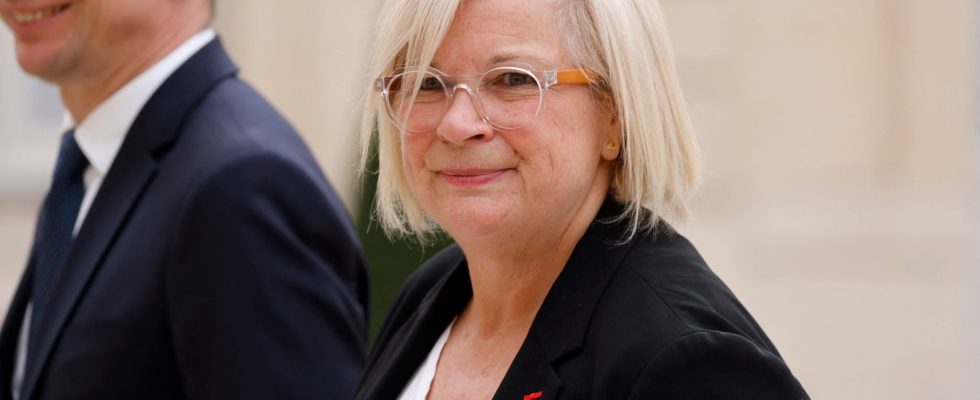Vulnerant omnes, ultima necat, indicated the clock. They all hurt, the last one kills. Hours that make a life… Immutable cycle. But when the movement of the needle suddenly can be precipitated by the law, it’s a whole world to rethink. The political leaders who, with careful steps, are moving towards “assisted dying”, do so with the awareness of coming up against an “intimidating” subject, according to the term chosen by Emmanuel Macron in his major interview at The cross and to Release. “Listening” becomes the key word. “Do not hurt”, the categorical goal. Since the bill was announced by the president, ministers, elected officials and advisors have expressed their attention to the wording; above all do not torment, above all do not hurt.
However, in the text transmitted to the Council of State, two sentences like two clouds gathering above the heads of the executive. By discovering first of all that the bill “indicates that the agreement given to the“assisted dying” is taken by a single professional”, according to the AFP which consulted the document, those who, within the majority, had carefully read the interview with the president could not contain their astonishment. Why then “collegiality” promised by the Head of State has it vanished? “It is up to a medical team to decide, collectively and in transparency, what action it gives to this request”, specified the latter. Collegially, written in black and white. In search of the lost adverb, certain deputies expressed their embarrassment to Minister Catherine Vautrin, who came to answer the majority’s questions during the group meeting on Tuesday March 19. She herself, who confides “to address everything this with calm, respect and caution”, did more than listen to the discomfort. Some understood that she shared it.
Why then this solitude of the decision in the bill sent to the Council of State? “Because it is indeed a single doctor who prescribes, explains one of those who worked on the text. It will indeed be a collegial process, but it is a single doctor who takes responsibility.” Added to this, according to the Ministry of Health, is the fear of burdening patients with “the difficulty in some places to find two or three doctors” within an acceptable time frame.
But what an immense responsibility on the shoulders of a single caregiver, even if he or she must, according to the text, necessarily seek the “opinion” of another “doctor, who does not know the person, a specialist in the pathology ” and a “paramedical professional who intervenes with her”. And, what if the patient unknowingly places his future in the hands of a doctor who, deep down, cannot and does not want to resign himself to cutting a life short?
“Opening up the possibilities”
“I am very open to discussion,” said Catherine Vautrin in a small group before sending The world of April 6 this message: “What suits me in this text is its balance between, on the one hand, respect for the patient’s wishes and, on the other hand, verification of the conditions required by an examination medical part of a collegial approach.” Collegiality rediscovered.
And concerns which, on another subject, persist: the possibility of someone close to the patient carrying out the lethal gesture. Precisely, according to the text: “Assistance in dying consists of the administration of a lethal substance, carried out by the person themselves or, when the person is not physically able to do so, by a doctor, nurse or a volunteer designated by the person.” Born from discussions that Emmanuel Macron had with caregivers, this proposal is moving, with many fearing the psychological consequences for those who remain.
Is there any dizziness greater than that which the act of taking life must produce? “The idea was to open up possibilities depending on the case,” says an Elysian advisor. “These will be extremely small cases, the exception within an exception, for people who are not able to absorb it themselves. ” As for the psychological monitoring that some voices are calling for, “it does not have to appear in the text but it could be subject to amendments, this is the type of question that emerges in the parliamentary debate, it is always like that on ethical questions, it’s very iterative.” To these intimate anxieties, Catherine Vautrin promises that she will respond with caution, vigilant in staying far from any dogma: “Who can have certainty on such a subject?” Only one certainty: ultima necat.
.
